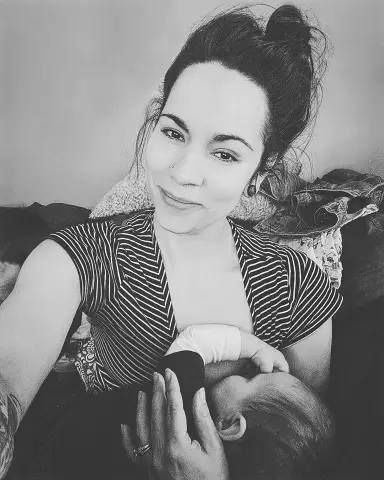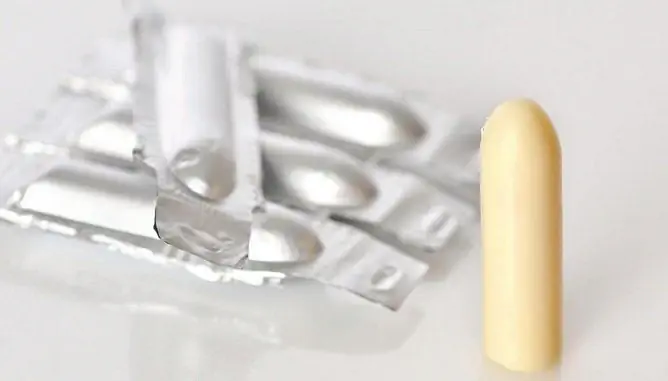- Author Rachel Wainwright [email protected].
- Public 2023-12-15 07:39.
- Last modified 2025-11-02 20:14.
Pills for breastfeeding
Nursing mothers often ask what pills a nursing mother can use. In Soviet times, it was believed that you should not take medicine while breastfeeding.

However, later, WHO conducted a number of studies. Studies have shown that it is possible to take most of the medication while breastfeeding a mother. A small part of the drug enters the mother's milk. The drug reaches its maximum concentration in milk no earlier than two to three hours after ingestion, and then is gradually excreted from the body. Therefore, it is simply enough to correctly calculate the safe time between taking the pill and feeding.
What pills can a nursing mother
Before taking any tablet while breastfeeding, you should consult your doctor and read the instructions carefully. In case of acute pain (toothache, headache), it is allowed to take Ketarol, Kalpol, Panadol. But tablets with analgin as part of breastfeeding should not be taken. Analgesics, penetrating into milk, disrupt the process of hematopoiesis, cause changes in the functioning of the kidneys, and also have a depressing effect on the nervous system of the baby. Aspirin should not be abused either. When the drug is taken in large doses, its concentration in the mother's milk increases, and this often leads to metabolic disorders in the baby.
Among the drugs for high blood pressure, the safest medicine for breastfeeding is Kapoten. The concentration of this drug in human milk is the lowest among similar drugs.
In case of indigestion, among all the tablets during breastfeeding, the activated carbon tablet will be the safest. Anti-poisoning drugs should be taken with extreme caution, but laxatives will not affect the child's health in any way.
You can take pills for breastfeeding with an antihistamine effect, but you must choose drugs of only one action.
Almost all drugs from the group of antidepressants remain high in breast milk for a long time, so they can be taken only after prior consultation with a specialist. In case of excessive nervousness and irritability, it is best to replace the tablets with herbal tea with a calming effect when breastfeeding.
Antibiotic treatment for breastfeeding
Treatment with antibiotics while breastfeeding negatively affects the health of the baby. If possible, you should refuse such treatment.
If a doctor has prescribed antibiotics for breastfeeding, then it is better to take them immediately after feeding or during feeding. If the drug can harm the baby, then for a while, you can stop breastfeeding or express the so-called "medication" milk. Milk with the maximum concentration of the antibiotic must be expressed and discarded two to six hours after taking the drug, and then the baby can be fed again.
All antibiotics are divided into several groups depending on the level of concentration in breast milk and the effect on the baby's body. Banned antibiotics for breastfeeding include tetracyclines and sulfonamides. Taking these drugs can lead to impaired development of the child's organs and to toxic damage to the body.

The macrolide group is not so dangerous, however, caution must be exercised when using antibiotics of this group. When these drugs are prescribed to the mother, the child is additionally prescribed drugs for dysbiosis.
Penicillins, cephalosporins, aminoglycosides are most compatible with breastfeeding. However, the timing and dosage of these pills when breastfeeding should be determined only by a doctor.
Paracetamol while breastfeeding
Paracetamol when breastfeeding will help reduce fever quickly. Within half an hour after taking the drug, mom will feel noticeable relief. Paracetamol helps with toothache, headache. This medication in tablets during breastfeeding can be taken for no longer than two to three days. The optimal dose of the drug is one tablet of the drug up to three to four times a day. It is necessary to take these pills while breastfeeding so that the feeding time does not coincide with the periods of maximum concentration of the drug in the blood plasma. When treating with paracetamol, you must follow all the rules and carefully monitor the well-being of the baby.
Found a mistake in the text? Select it and press Ctrl + Enter.






